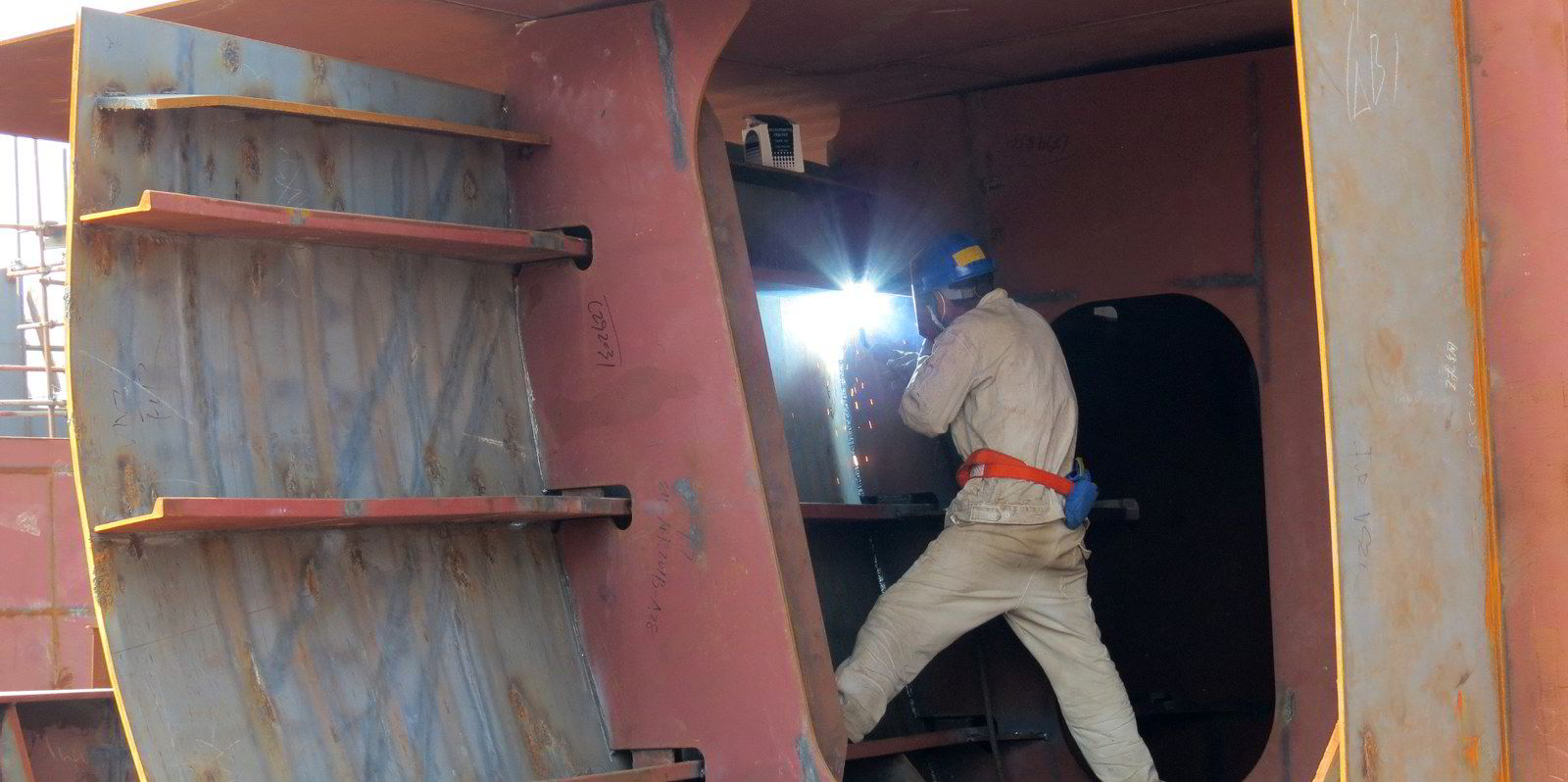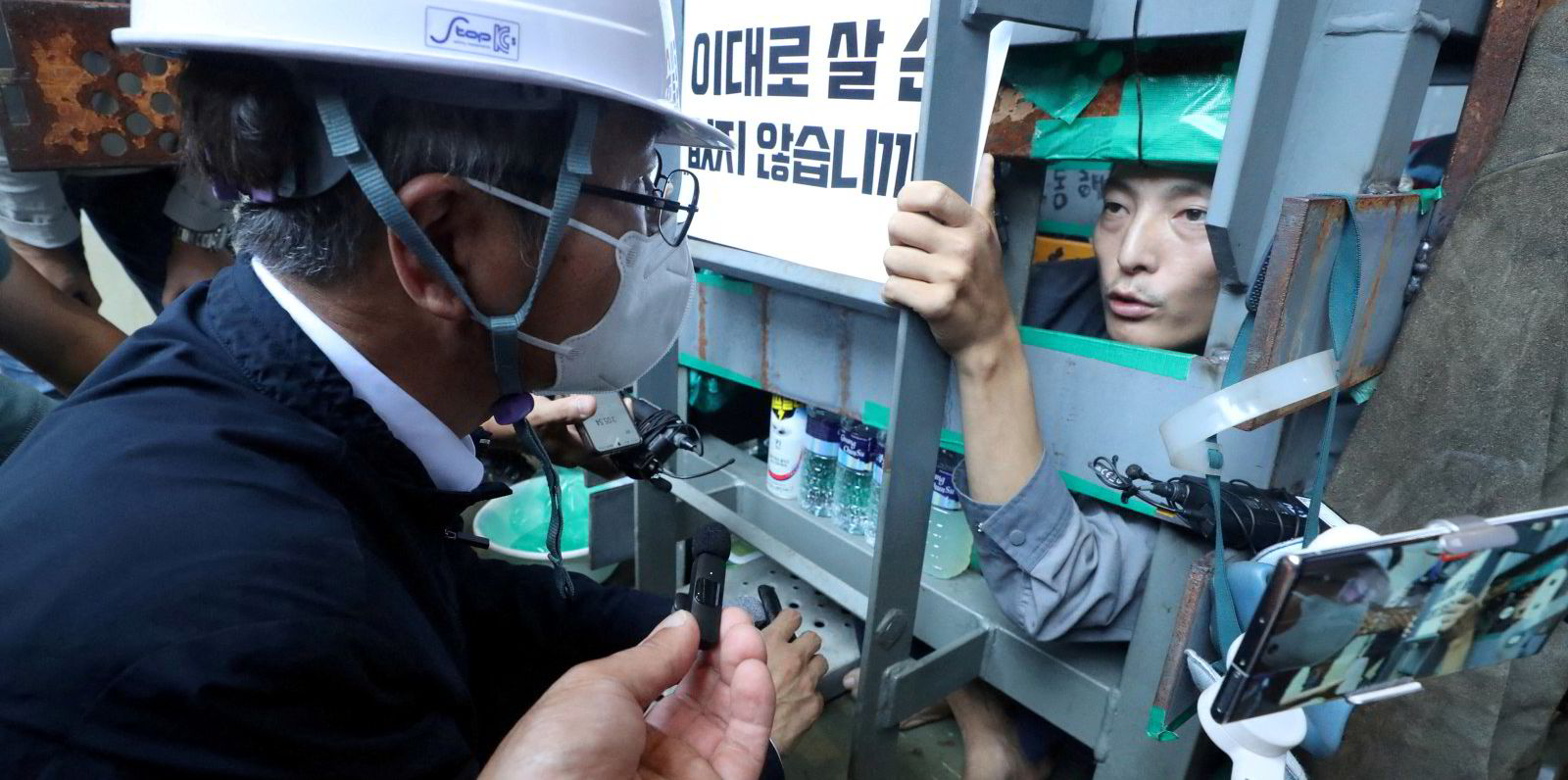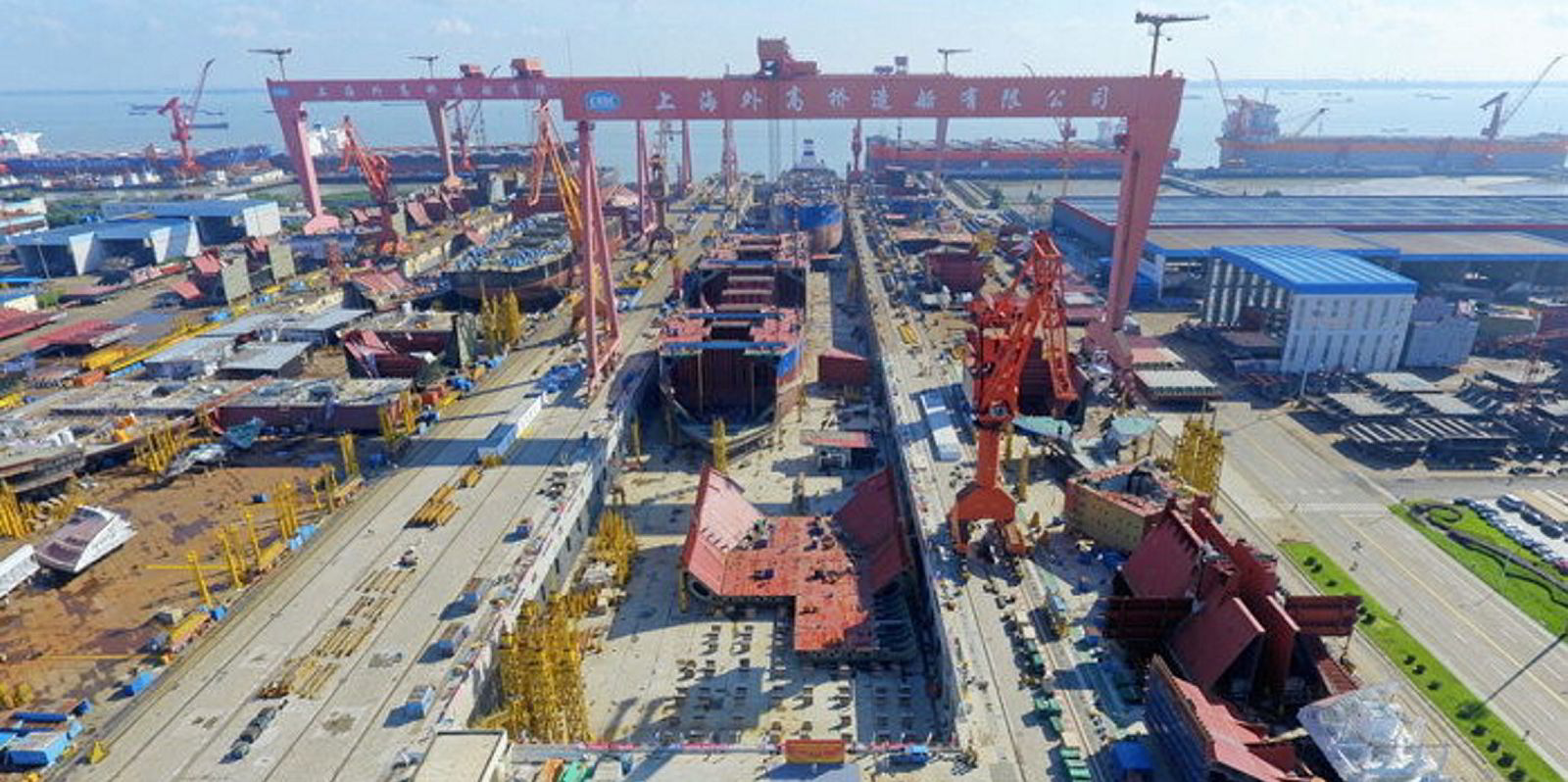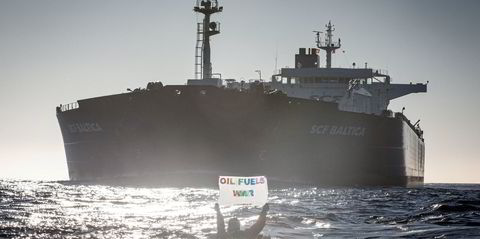Yards in southern China have been forced to declare force majeure on some orders, after work schedules and production were severely affected by searing temperatures.
This summer has been one of the hottest in the region in six decades, with peak temperatures between 40C and 42C.
Meteorologists are warning that the heatwave could continue well into September.
Drought has dried up rivers and damaged hydropower production from dams. The government is rationing power and has decided to prioritise residential over industrial use.
Shipyard work has become nearly impossible in the sweltering temperatures and workers have had to take unscheduled breaks. Production has been delayed as the thermometer regularly reached 40C in July and August.
Temperatures on the shop floor have been even higher, with workers complaining it feels more like 50C.
The beating sun has turned ship decks into red-hot plates, with temperatures as high as 80C recorded.
“It’s hot enough to cook an egg sunny side up,” one yard manager said.
Yards have declared force majeure as a precautionary measure to protect themselves at an early stage, but it will come into effect only if deliveries are delayed.
The terms of shipbuilding contracts vary. Some state that when temperatures exceed 35C for a consecutive number of days, yards can exercise their right to declare force majeure. Others specify temperatures upwards of 37C.
Declaring force majeure does not absolve shipbuilders from taking measures to make sure delivery dates are met, and is not necessarily a free ride for yards.
One broker said yards still need to prove that they have tried to resolve the situation and make up time on delays.
In an attempt to keep production on schedule, some yards have opted to start work earlier and have a longer lunch break. Work then resumes as temperatures start to dip, around 4pm, and employees work until late in the evening.
Pushing up costs
Some work that can be carried out at night, such as coating application, is not being undertaken during the day. However, the need to make these changes is pushing up production costs.
Many owners are said to be sympathetic towards the position of the yards and their attempts to meet schedules.
The heatwave is the latest setback for Chinese yards. Production schedules were disrupted earlier this year by an emergency Covid-19 lockdown in Shanghai and other regions.
Yet brokers suggested that yards may find it easier to make a force majeure claim related to the summer heat than one related to the pandemic.
Most newbuilding contracts do not include a communicable diseases clause. Also, there is a view that the Covid lockdown was only partial, and was never made official by the Chinese government, which might make it difficult for a force majeure claim to stick legally.






